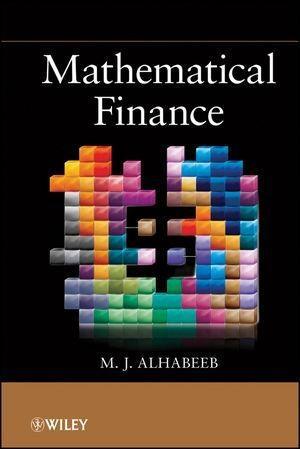
Sofort lieferbar (Download)
An introduction to the mathematical skills needed to understand
finance and make better financial decisions
Mathematical Finance enables readers to develop the mathematical
skills needed to better understand and solve financial problems
that arise in business, from small entrepreneurial operations to
large corporations, and to also make better personal financial
decisions. Despite the availability of automated tools to perform
financial calculations, the author demonstrates that a basic grasp
of the underlying mathematical formulas and tables is essential to
truly understand finance.
The book begins with an introduction to the most fundamental
mathematical concepts, including numbers, exponents, and
logarithms; mathematical progressions; and statistical measures.
Next, the author explores the mathematics of the time value of
money through a discussion of simple interest, bank discount,
compound interest, and annuities. Subsequent chapters explore the
mathematical aspects of various financial scenarios, including:
* Mortgage debt, leasing, and credit and loans
* Capital budgeting, depreciation, and depletion
* Break-even analysis and leverage
* Investing, with coverage of stocks, bonds, mutual funds,
options, cost of capital, and ratio analysis
* Return and risk, along with a discussion of the Capital Asset
Pricing Model (CAPM)
* Life annuities as well as life, property, and casualty
insurance
Throughout the book, numerous examples and exercises present
realistic financial scenarios that aid readers in applying their
newfound mathematical skills to devise solutions. The author does
not promote the use of financial calculators and computers, but
rather guides readers through problem solving using formulas and
tables with little emphasis on derivations and proofs.
Extensively class-tested to ensure an easy-to-follow
presentation, Mathematical Finance is an excellent book for courses
in business, economics, and mathematics of finance at the
upper-undergraduate and graduate levels. The book is also
appropriate for consumers and entrepreneurs who need to build their
mathematical skills in order to better understand financial
problems and make better financial choices.
finance and make better financial decisions
Mathematical Finance enables readers to develop the mathematical
skills needed to better understand and solve financial problems
that arise in business, from small entrepreneurial operations to
large corporations, and to also make better personal financial
decisions. Despite the availability of automated tools to perform
financial calculations, the author demonstrates that a basic grasp
of the underlying mathematical formulas and tables is essential to
truly understand finance.
The book begins with an introduction to the most fundamental
mathematical concepts, including numbers, exponents, and
logarithms; mathematical progressions; and statistical measures.
Next, the author explores the mathematics of the time value of
money through a discussion of simple interest, bank discount,
compound interest, and annuities. Subsequent chapters explore the
mathematical aspects of various financial scenarios, including:
* Mortgage debt, leasing, and credit and loans
* Capital budgeting, depreciation, and depletion
* Break-even analysis and leverage
* Investing, with coverage of stocks, bonds, mutual funds,
options, cost of capital, and ratio analysis
* Return and risk, along with a discussion of the Capital Asset
Pricing Model (CAPM)
* Life annuities as well as life, property, and casualty
insurance
Throughout the book, numerous examples and exercises present
realistic financial scenarios that aid readers in applying their
newfound mathematical skills to devise solutions. The author does
not promote the use of financial calculators and computers, but
rather guides readers through problem solving using formulas and
tables with little emphasis on derivations and proofs.
Extensively class-tested to ensure an easy-to-follow
presentation, Mathematical Finance is an excellent book for courses
in business, economics, and mathematics of finance at the
upper-undergraduate and graduate levels. The book is also
appropriate for consumers and entrepreneurs who need to build their
mathematical skills in order to better understand financial
problems and make better financial choices.
Produktdetails
Erscheinungsdatum
31. Juli 2012
Sprache
englisch
Seitenanzahl
554
Dateigröße
2,59 MB
Autor/Autorin
M. J. Alhabeeb
Verlag/Hersteller
Kopierschutz
mit Adobe-DRM-Kopierschutz
Produktart
EBOOK
Dateiformat
PDF
ISBN
9781118106914
Entdecken Sie mehr
Bewertungen
0 Bewertungen
Es wurden noch keine Bewertungen abgegeben. Schreiben Sie die erste Bewertung zu "Mathematical Finance" und helfen Sie damit anderen bei der Kaufentscheidung.









